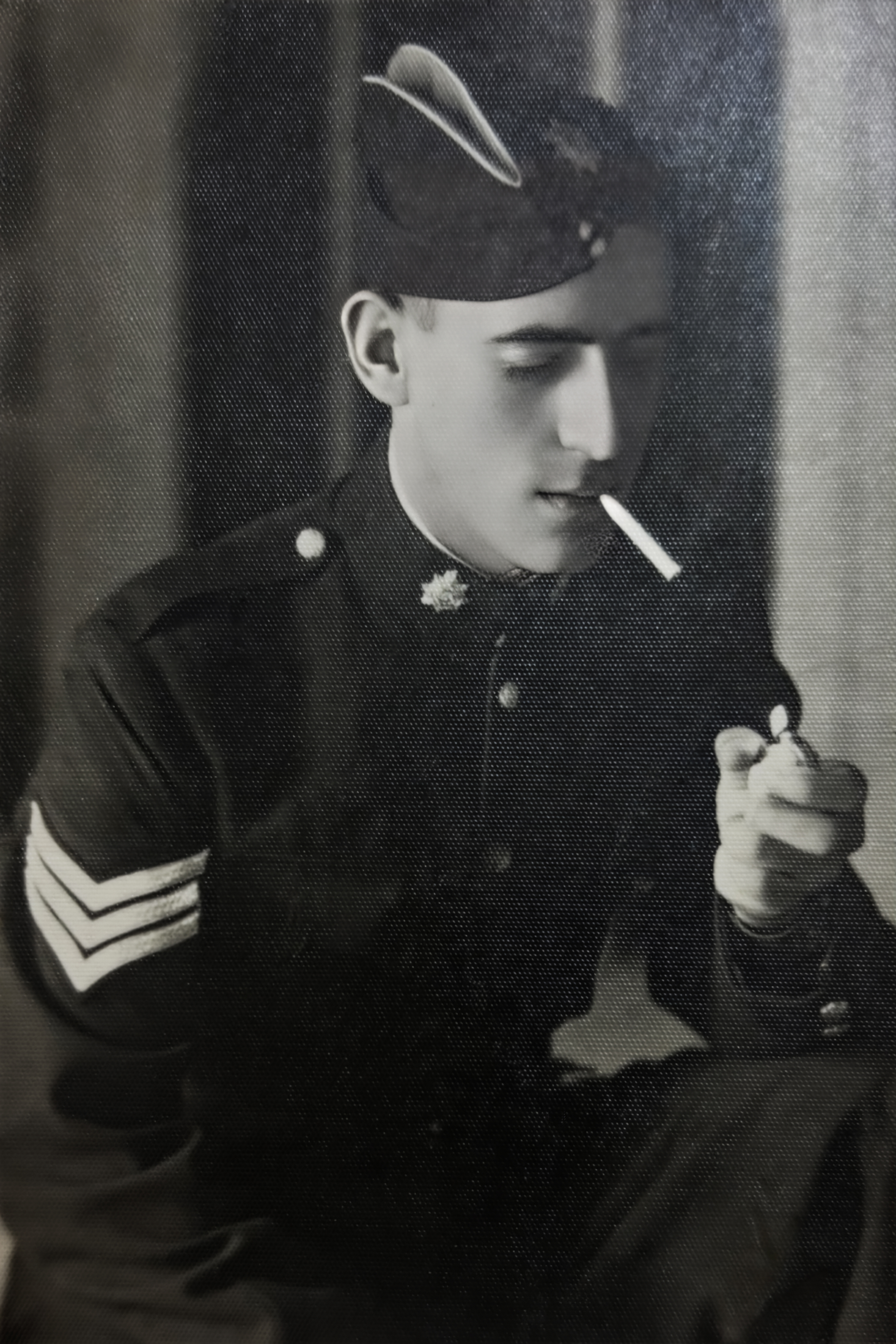Phylactis Aristokleous was a Cypriot sergeant who served with the Cyprus Regiment of the British Army during the Second World War. He was captured in Greece in 1941 and spent more than four years in German captivity, including over two years in Stalag 383.
The Cyprus Regiment was made up of volunteers from across the island — Greek- and Turkish-Cypriots, often serving together. Many joined to support the Allied cause or to earn a small wage at a time of hardship at home. Phylactis had trained as a clerk before the war, and his eye for order and detail shaped the way he later recorded his experiences.
After being captured, he was first sent to a labour camp near Varnsdorf, close to the modern Czech border. Prisoners there were forced to work in local factories with little food or rest. The work was dangerous and exhausting, and many became ill or injured. After several months, he and others were moved to a permanent prisoner-of-war camp in Germany.
Before arriving in Germany, he had already experienced long months of uncertainty in temporary camps and on the journey north by train. Prisoners slept in crowded wagons with little food or water, passing through bomb-damaged cities they barely recognised. By the time he reached Stalag 383, captivity had become a routine he could endure but never accept.
Stalag 383, near Hohenfels in Bavaria, held more than five thousand non-commissioned soldiers between 1943 and 1945.
His memoir shows a calm, precise style, noting small details of behaviour and language rather than anger or complaint. Through observation, he tried to make sense of the people around him and the strange order of camp life. He described the smallest details of daily life — how guards walked, how prisoners slept, and how lice covered their clothes.
He also thought deeply about fairness and duty. When he gave a few of his own biscuits to a sick British sergeant, he later said that the act troubled his conscience, because the biscuits came from his men’s rations. A few days later, when a spare loaf of bread was raffled, Phylactis won and shared it with his group, wondering if this was fate’s way of returning what he had given.
Phylactis’s reflections on fairness and conscience reveal a man who never let captivity harden him. Even when he questioned his own choices, he held on to a belief that honesty and care for others mattered — small acts of integrity that helped him survive what came next.

